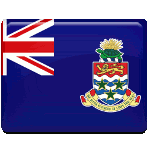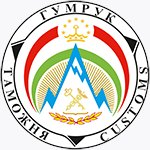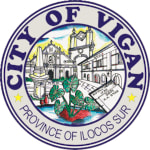Holidays Calendar for January 22, 2018
Plurinational State Foundation Day (Día del Estado Plurinacional) is a public holiday in Bolivia celebrated on January 22. It has been celebrated since 2010.
National Heroes' Day is a public holiday in the Cayman Islands celebrated on the fourth Monday in January. The celebration has been held since 2003.
Community Manager Appreciation Day is an annual event held on the fourth Monday in January. It is dedicated to online community managers – people responsible for building, developing, and managing online communities, often around a brand or a cause.
Customs Officers’ Day, also known as Customs Officials’ Day, is one of the official professional holidays in Tajikistan established by the country’s Law on Holidays. It is celebrated annually on January 22 to commemorate the founding anniversary of the Customs Service of Tajikistan.
Ukraine celebrates Unity Day on January 22 each year. It is an official observance, but it is not a public holiday.
Vigan Cityhood Day (Araw ng Pagkalungsod ng Vigan) is celebrated every year on January 22 in Vigan, Ilocos Sur, Philippines. It commemorates the day when Vigan was promoted from a municipality to a city.
January 22 is National Blonde Brownie Day. A blonde brownie, also known as a blondie, is a classic butterscotch treat that comes in different flavors.
Some people prefer it when their food tastes mild, and some like it hot. If you belong to the latter group, you absolutely should celebrate National Hot Sauce Day on January 22. This amazing holiday is dedicated to all varieties of hot sauce that you can think of.
January 22 is a great day to wear your favorite polka dot dress because it is National Polka Dot Day. This holiday was created to celebrate one of the most iconic patterns and to pay homage to Minnie Mouse, a Disney character who wears a recognizable polka-dotted dress.
Some countries have a single Grandparents' Day to celebrate both grandfathers and grandmothers, but Poland has two separate holidays. Grandmother's Day in Poland is celebrated on January 21, and Grandfather's Day (Dzień Dziadka) is observed a day later, on January 22.
Festivals for January 22, 2018
- Carnival of Ovar in Ovar, Portugal
- International Theatre Festival of Kerala in Thrissur, India
- Montreal International Auto Show in Montreal, Canada
- Slamdance Film Festival in Park City, USA
- Berlin International Green Week in Berlin, Germany
- Sundance Film Festival in Park CIty, USA
- Celtic Connections in Glasgow, United Kingdom
- Carnival of Santa Cruz de Tenerife in Santa Cruz de Tenerife, Spain
- Patras Carnival in Patras, Greece
- M1 Singapore Fringe Festival in Singapore, Singapore
- Massafra Carnival in Massafra, Italy
- Manfredonia Carnival in Manfredonia, Italy
- Rijeka Carnival in Rijeka, Croatia
- Niagara Icewine Festival in Niagara Falls, Canada
- Carnival of Limoux in Limoux, France
This Day in History
- 2018 Died: Ursula K. Le Guin, American novelist who worked mainly in the genres of science fiction and fantasy. Her works often depicted futuristic or imaginary alternative worlds in politics, the natural environment, gender, religion, sexuality, and ethnography.
- 2008 Died: Heath Ledger, Australian actor and director, known for the films 10 Things I Hate About You, The Patriot, Brokeback Mountain, The Dark Knight, and The Imaginarium of Doctor Parnassus.
- 1993 Died: Kōbō Abe, Japanese writer, photographer, playwright and inventor. Abe is known for this surreal and often nightmarish explorations of individuals in contemporary society.
- 1990 Died: David Edward Hughes, Welsh-American physicist, the co-inventor of the microphone.
- 1984 The Apple Macintosh was introduced during Super Bowl XVIII with its famous "1984" television commercial. The computer mouse and the graphical user interface were popularized by this computer.
- 1981 Born: Ben Moody, American singer-songwriter, guitarist, producer, and actor. He is best known as the co-founder and lead guitarist of Evanescence from 1995 to 2003.
- 1973 Died: Lyndon B. Johnson, American politician, the 36th President of the United Sates.
- 1973 A chartered Boeing 707 exploded upon landing at Kano Airport, Nigeria, killing 176.
- 1973 Elective abortion was legalized in all 50 states by the decision of the Supreme Court of the United Sates.
- 1971 Died: Harry Frank Guggenheim, American businessman and publisher who co-founded Newsday (a daily newspaper that primarily serves parts of Long Island) in 1940.
- 1971 The Singapore Declaration was issued. This is one of the two most important documents to the uncodified constitution of the Commonwealth of Nations.
- 1968 Apollo 5 lifted off carrying the first Lunar module into space.
- 1965 Born: Diane Lane, American actress. Her accolades, as of 2026, include nominations for an Academy Award, three Primetime Emmy Awards, three Golden Globe Awards, and several Screen Actors Guild Awards.
- 1965 Born: Steven Adler, American musician. He is best known as the former drummer and co-songwriter of Guns N' Roses, with whom he achieved worldwide success in the late 1980s.
- 1959 Born: Linda Blair, American actress and activist who came to prominence with her portrayal of Regan MacNeil in The Exorcist, which established her as a scream queen.
- 1957 George P. Metesky, also known as the New York City "Mad Bomber", was arrested in Waterbury, Connecticut. He was charged with planting more than 30 bombs.
- 1953 Born: Jim Jarmusch, American film director and screenwriter. His best known films include Stranger Than Paradise, Mystery Train, Coffee and Cigarettes, Only Lovers Left Alive, and more.
- 1951 Born: Ondrej Nepela, Slovak figure skater who represented Czechoslovakia. He was the 1972 Olympic champion, a three-time World champion, and a five-time European champion.
- 1951 Died: Karl Nessler, German-American hairdresser, known as the inventor of the permanent wave.
- 1946 The Central Intelligence Group was created. The Group was the forerunner of the Central Intelligence Agency.
- 1940 Born: John Hurt, English actor whose career spanned over five decades. He received numerous awards and was knighted by Queen Elizabeth II in 2015 for his services to drama.
- 1931 Born: Sam Cooke, American singer and songwriter, generally considered among the greatest of all time. He is commonly known as the King of Soul for his distinctive voice and importance within popular music.
- 1927 Died: James Ford Rhodes, American industrialist and historian. After earning a fortune in the iron, coal, and steel industries by 1885, he retired from business to devote time to historical research.
- 1927 The world's first live radio commentary of a football match between Arsenal F.C and Sheffield Untied at Highbury was given by Teddy Wakelam.
- 1924 Born: Ortvin Sarapu, New Zealand chess player, sometimes known as "Mr Chess". Sarapu won or shared the New Zealand Chess Championship 20 times from 1952 to 1990.
- 1922 Died: Pope Benedict XV (born Giacomo Paolo Giovanni Battista della Chiesa), head of the Catholic Church from 1914 until his death. His pontificate was largely overshadowed by World War I.
- 1915 Over 600 people were killed in a railroad incident in Guadalajara, Mexico. A train plunged off the tracks into a deep canyon.
- 1906 SS Valencia, an iron-hulled passenger steamer, ran aground on rocks on Vancouver Island, British Columbia, killing over 130 people.
- 1901 Died: Queen Victoria of the United Kingdom, the last British monarch of the House of Hanover.
- 1898 Born: Sergei Eisenstein, Soviet film director and film theorist who is considered a pioneer in the theory and practice of montage. He is known for his film Battleship Potemkin.
- 1879 Born: Francis Picabia, French painter and poet associated with Cubism. He was one of the earliest and major figures of the Dada movement in the U.S. and France.
- 1875 Born: D. W. Griffith, American director, producer, and screenwriter. Griffith is remembered as the director of the 1915 film The Birth of a Nation, which is considered the very first blockbuster.
- 1858 Born: Beatrice Webb, English economist and sociologist. She was the co-founder of the London School of Economics and Political Science and played a crucial role in forming the Fabian Society.
- 1840 Died: Johann Friedrich Blumenbach, German anthropologist who was one of the first to explore the study of mankind as an aspect of natural history. He is also known for his teachings in comparative anatomy.
- 1788 Born: Lord Byron, English poet and a leading figure in the Romantic movement. Don Juan, Childe Harold's Pilgrimage, She Walks in Beauty are Byron's best-known works.
- 1561 Born: Francis Bacon, English philosopher. Bacon is called the father of empiricism and is known for establishing and popularizing inductive methodologies for scientific inquiry, often called the Baconian method, or simply the scientific method.









